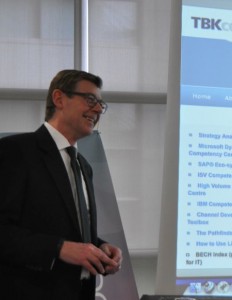Do you accept all invitations for coffee? Maybe you should consider if this is best use of your time. Maybe there are other ways to help more people without having to invest so much time and drink so much coffee.

I was the keynote speaker at a business event some time ago. At the following lunch I was sitting next to the CEO of a software company.
As my keynote was about how information technology and software companies can grow faster than their competitors, we obviously talked a lot about issues related to this subject. We especially talked about how to enter foreign markets. At a particular stage in the conversation, the CEO asked me a question that I frequently get:
“So how can you help our company?”
I think I saw some level of surprise in her eyes when I answered:
“I don’t know?”
After a few minutes of silence, I told her that – in my capacity as an advisor – I work very much like a doctor. Doctors rarely have patients coming to their clinics asking: “Doctor, what can you do for me?” I also rarely hear doctors making general presentations elaborating on all the good things they may do for their patients. Just as patients need to give the doctor some clues as to what the consultation should be about, advisors also need to learn about the issues or objectives first. Do you have a problem that needs fixing now or do you have the ambition of winning gold in Triathlon at the next Olympic games? Why are you asking for a consultation?

The CEO understood that very well and asked if I could find time for a cup of coffee while I was in town. I asked her if she was engaging me for a consultation and again, she looked at me somewhat surprised.
“Will you be charging me for having a cup of coffee?” the CEO asked.
I responded: “Will the doctor charge you for a consultation?”
“Yes, she will, but that is different,” said the CEO.
“How is it different?” I asked.
“Well, I know that the doctor can help me so it is only fair that she gets paid,” replied the CEO.
“That is not exactly true,” I responded. “The doctor can fix trivialities now and then, although in most cases, she will simply ask you to wait and see. However, if it is something more complicated, then she will ask you to take certain tests before she will attempt to make any diagnosis. She may very well refer you to a specialist or even have you admitted to the hospital without making any diagnosis. She will charge for the consultation nevertheless.”
“I am not paying you to have a cup of coffee with me,” said the CEO.
As it wasn’t a question, I didn’t respond and picked up conversations with some of the other attendees.
Of course, I don’t always charge for having a cup of coffee with someone, but often I pretend that I do. I prefer to choose my coffee-drinking company myself, and in this case, I decided to take a rain check. Later that same day, I went to a cafe around the corner from my hotel for a cappuccino with some of the other attendees from the event.
